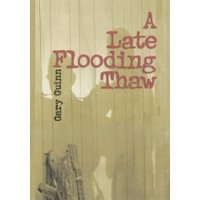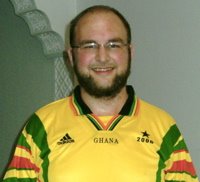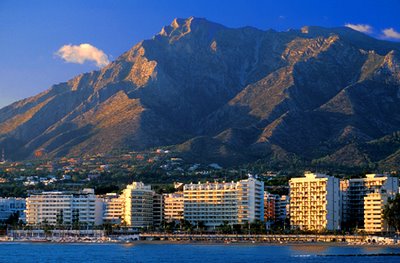 A Late Flooding Thaw
A Late Flooding Thaw is a novel that everyone living in, going to, or coming from Northwest Arkansas should read. In fact, it’s a beautifully rendered Southern novel. The story traces two couples in Delaney, a small town in southern Madison County, as they undergo the everyday events of life in rural Arkansas around the turn of the twentieth century—marriages good and bad, abuse, insanity, faith and apostasy, violence and alcoholism, childbirth and death, and underneath it all, crushing poverty. The novel is powerful, sad and stark and ultimately hopeful.
(A couple of disclaimers: First, I took several literature classes with the author, Gary Guinn, at John Brown University, and around 1995 I heard Dr. Guinn read some very early chapters, little of whose content made it into this book. I have tremendous respect for him and wait eagerly for the story of Virgil Bass. Second, I’m something of an insider to the novel’s world: My maternal grandmother’s people are all from Madison, Benton, Washington, and Carroll counties. In the 1890s my great-great-grandfather, Dean Sutton, had a blacksmith’s shop on the square in Fayetteville. In the 1920s his son Ralph brought his family back from southern California and began working as a heavy equipment operator in Huntsville. His daughter, Katherine, my grandmother, taught in a one-room schoolhouse somewhere in Madison County before marrying a dairy farmer from Kansas in 1945, and they lived on a small farm east of Clifty for the next 44 years. My mom’s family did their schooling in Huntsville, their churching in Eureka Springs, and their shopping in Springdale and Fayetteville.)
Guinn’s novel follows the lives of the Bass brothers, Henry and Walter. Their father, Virgil, an Irish immigrant and former Confederate soldier, arrived in Delaney on an old wagon with his wife nearly ready to give birth. When the local doctor heard her time had come, he went up to the shack to offer his services, even for free, but Virgil, insulted, physically threw him out. The two boys grew up ostracized by the rest of the town. When Virgil disappeared mysteriously, Henry, the oldest, took over the lumber mill that Virgil had swindled out of its owner. His younger brother Walter worked there and kept to himself. As a teenager, Walter had been walking in the woods one day when he saw Emma, a few years younger than he and daughter of a deacon in the local Holiness church, swimming nude in the river. She had stood up and beckoned for him to come join her, but he had run away. But he remembered her for many years.
One night much later, Walter was drinking in the ruins of his mother’s cabin, where the abusive and then senile old woman had just died in a fire. As Walter sat there drunk, he heard the strains of music coming from the church. He walked in and was slain in the spirit and was ministered to by Emma, still consumed by the guilt of her early lust. They married soon after. Henry, meanwhile, hadn’t lifted a finger to stop her when 16-year-old Naomi, the classically educated daughter of a Fayetteville minister, rebelled against her strict, icy father and her sexually abusive uncle, with whose family she had been living in Delaney after her mother’s death. She proposed that Henry marry her, and he agreed.
The story is told through a series of first-person narrative chapters, occasionally interspersed with one by a third-person limited narrator. The various characters often ruminate on and rehash the same events, giving a naturalistic feel to the text, as if Guinn were leading the reader to see how one’s social position and psychological disposition lead one to very idiosyncratic and particular interpretations of key events. The key events surround the troubled and sexless relationship between repressed Naomi and alcoholic Henry, the heartbreaking attempts of Walter and Emma to conceive a healthy baby, and more generally the stymied efforts of the Bass brothers to cross class boundaries and be accepted by prejudiced small town society. Of particular interest are the pitiful and self-absorbed internal monologues of Charity, the “other woman” who loves Walter and, when she does not get to marry him, marries no one else.
At the same time, Guinn’s descriptions are very well developed and tangible, showing great sensitivity to the tastes, smells, and textures of everyday life. In this extended extract, Walter and Emma are drinking coffee one evening not so very long after suffering a crushing loss:
When Walter finished eating, Emma picked up the plates and took them into the kitchen. She returned with a pot of coffee and filled their cups, resting her hand on his shoulder and leaning lightly on him as she poured. He breathed the smell of the bread, of the coffee, and of the long braid of her hair, which she had pulled around to the side and swung now close to his face.
Emma took the coffeepot back to the kitchen, then sat down at the table. Walter cut a slice from the half loaf of bread that lay on the cutting board, handed it to her, then cut a slice for himself. The butter had warmed sitting out in the kitchen, and it spread easily.
“Papa stopped by this morning,” she said.
“Need something?” he said. He didn’t want to talk about her parents, about the fact that her mother couldn’t stop blaming him.
“Just had the urge to see his little girl, I think,” she said. “I was working in the garden, pulling up the corn stalks and stacking them.” She took a bite of bread and chewed slowly. “Those stalks stand out there like skinny old women after harvest, turning brown, stooped, shuffling in the wind.” She smiled. “Always made me think of somebody I know, like Mrs. Ivey.”
She sipped her coffee. “This year it made me think of myself.” She looked across her coffee cup at him. “Funny isn’t it?”
Her eyes were gray beneath the dark eyebrows, and the shadow of the coffee cup just touched her lower lip.
“What I like best,” she said, “is that when the stalks are gone, the pumpkin vines cover the garden, and the pumpkins look like little fat islands.”
She seemed to be lost in her thoughts for a moment, and he took a drink of coffee. “I’ll get to those stalks this weekend,” he said.
“I think I noticed for the first time,” she said, “how the skin is sagging under Papa’s eyes.”
She began to talk a little faster, as if she wanted to say something before she forgot it.
“Then I found myself talking about Joshua,” she said, “telling Papa how we prayed so long to have him, and how helpless he was and how I couldn’t do anything, couldn’t pray him through, and how now it seemed like something more than Joshua was gone.”
Outside the window, darkness had swallowed everything. The lane, the fence, the shed, the field. She would have to talk about Joshua, and as always, he would rise up between them, and every other possibility would be smothered in the wringing of hands and the tears.
“Papa said the strangest thing. He said that old wagon, the hearse, rolls down through town and out to Patrick cemetery pretty often. Always carrying somebody, always leaving somebody behind. And problem is, we see how full that cemetery is of people we know, people not ready, not finished living. Worst of all how many stones stand over infant babies.”
Her eyes watered. In the first months after Joshua’s death, he had held her, shushed her, patted on her after he put out the lamp, as she cried herself to sleep.
“Then Papa said that it took him a long time, but he finally learned that the biggest part of faith is taking the world on its own terms. I wasn’t sure what he meant. Taking the world on its own terms. And then he said, ‘Emmy, sooner or later you got the embrace the dying.’”
She picked at the bread on her plate. “Embrace the dying. Now that’s a new one. He told me to look at those autumn leaves, all that dying, falling back to earth, burning in the sun like fire from the Holy Ghost. He said it was the Good Lord’s way of saying, ‘Look at this dying here, it’s a thing of beauty.’”
She picked up her cup and started to take a drink, but stopped and said, “I’m going to need more coffee to finish this bread. How about you?”
Walter wanted to tell her that for once her father was right and not to talk any more about Joshua. He said “Sure.”
She brought the coffeepot, and before she poured his coffee, she stopped and looked out the window into the dark and said, “Almost the last thing Papa said before he left was ‘Emmy, you know what’s hurting you most, don’t you? It’s never being able to touch Joshua again. That’s what’s hurting you.’ Then he said ‘But Emmy, you got a lot of living still to do. You can’t quit touching now.’”
She leaned over and poured his coffee. “After Papa left,” she said, “I kneaded the bread dough, and while it rose, I sat out on the front porch cutting up the Jonathans for a pie, thinking about what Papa said.”
Walter made himself breathe slowly. The smell of her, the coffee, the bread. She poured her own coffee, set the pot on the table, and sat down.
She sipped the coffee. “And I kept thinking about those corn stalks,” she said, “drying out, rattling in the wind.” The corners of her mouth started up and she looked away.
They ate the bread slowly, as if they were just killing time.
“Those starlings are pests, you know,” she said. “I put scraps out on the feeder, and the starlings chase off the cardinals and chickadees. Only thing meaner is a blue jay, I think.”
He said, “I heard a couple of owls calling while I was out washing up.”
They drank the coffee between bites of bread. When he finished his bread and swallowed the last of his coffee, she looked up at him, part of her bread in her hand. Her gaze dropped to her plate and her breath rose and fell and he could see a smile lift the corners of her mouth again, just as it had when they sat on the front porch of the Sinclair house before they were married. When she said Yes. She put the bread back down on her plate and stood up. He stood, stepped around to the side of the table, cupped his hand around the top of the lantern globe and blew out the flame, then held out his hand to her.
She took it as she came up to him, and he pulled her to him and kissed her before she turned and led the way to the bedroom. As they walked through the dark living room, she pulled the clasp from the braid of her hair and let it fall loose around her shoulders. Their footfalls were quiet, but the floorboards creaked just in front of the bedroom door, first as Emma crossed them and then again with Walter.
Gary Guinn (2005)
A Late Flooding Thaw. Siloam Springs, AR: Moon Lake Press. Pp. 164-167.
The novel is available at the John Brown University Bookstore on the JBU campus and
online at Amazon.com
 Last week’s Le Journal Hebdomadaire featured a cover story about the brief but very tangled chapter of Scientology in the history of Morocco and, appropriately enough, Tangier. No doubt the magazine was motivated by The Ubiquitous One, his naive fiancee, and their newborn daughter named for a shiny little carriage with a fringe on top. After last year’s kookery cementing the fringe status of Scientology, Tom has worked hard this year to rehabilitate its global image. But here’s another kooky story.
Last week’s Le Journal Hebdomadaire featured a cover story about the brief but very tangled chapter of Scientology in the history of Morocco and, appropriately enough, Tangier. No doubt the magazine was motivated by The Ubiquitous One, his naive fiancee, and their newborn daughter named for a shiny little carriage with a fringe on top. After last year’s kookery cementing the fringe status of Scientology, Tom has worked hard this year to rehabilitate its global image. But here’s another kooky story.










